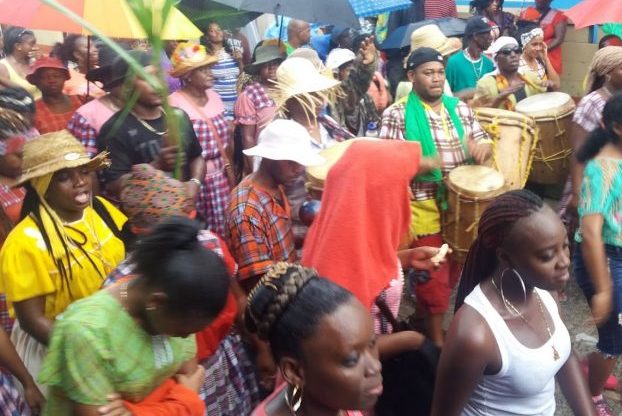
Apr 3, 2020 | News
Millions of indigenous people in Guatemala (Mayas, Garífunas and Xincas) are at increased risk of falling victim to COVID-19 unless the government immediately provides them with necessary information and ensures they have access to adequate health care without discrimination, the ICJ said today.
“Guatemala’s indigenous people face an increased risk of suffering during this global pandemic because of the historic and systemic discrimination against them, which means that they don’t have access to proper information needed to protect themselves, nor to health care should they fall ill because of COVID-19,” said Ramón Cadena, ICJ’s Central America Director.
“The most suffering indigenous communities could be those very poor indigenous communities living at the border with México.”
The ICJ called on Guatemalan authorities to ensure that information about public health measures regarding COVID-19 be offered in the languages most used by indigenous communities (mayan languages such as ixil, quiché, mam, q´eqchí, kaqchikel; and garífuna and xinca languages).
During the pandemic the State of Guatemala has not taken into account the difficulties, such as financial, geographical, technological or linguistic barriers, that indigenous people face in accessing information.
On the other side, the ICJ has noticed that the information about the governmental measures to face the pandemic, has been disseminated in a very limited way.
Indigenous communities have been excluded from the official health system because of the discrimination against them and the lack of resources invested in the health system of Guatemala due to processes of privatization of social services, which have been implemented in Guatemala after the signature of the Peace Accords.
“The general weakness of the Guatemalan public health system, historic racism against the indigenous community and the tremendous general social inequality in the country all aggravate the potential impact of the pandemic on the indigenous community,” Cadena said.
The ICJ urges the State of Guatemala to take the necessary legislative, administrative, and judicial measures to protect Indigenous Peoples and preserve their human rights during the current emergency, specifically their right to health, food, and housing.
The ICJ also called on the Guatemalan government to avoid measures that threaten the life and dignity of people, including those from the indigenous community who are generally most subject to violations of their civil and political rights.
“Any measures taken in response to the pandemic must be limited to those that are strictly necessary, legitimate, and proportionate to the risk facing the community, and limited in time and subject to review,” Cadena said.
“There are certain guarantees, such as the right to an effective judicial remedy, that cannot be suspended or repealed and that are vital so that citizens, including indigenous people, can safeguard their rights, and even as the pandemic inevitably affects the legal system the government must do all it can to avoid discrimination against the indigenous community, which already suffers from racism and lack of access to justice.”
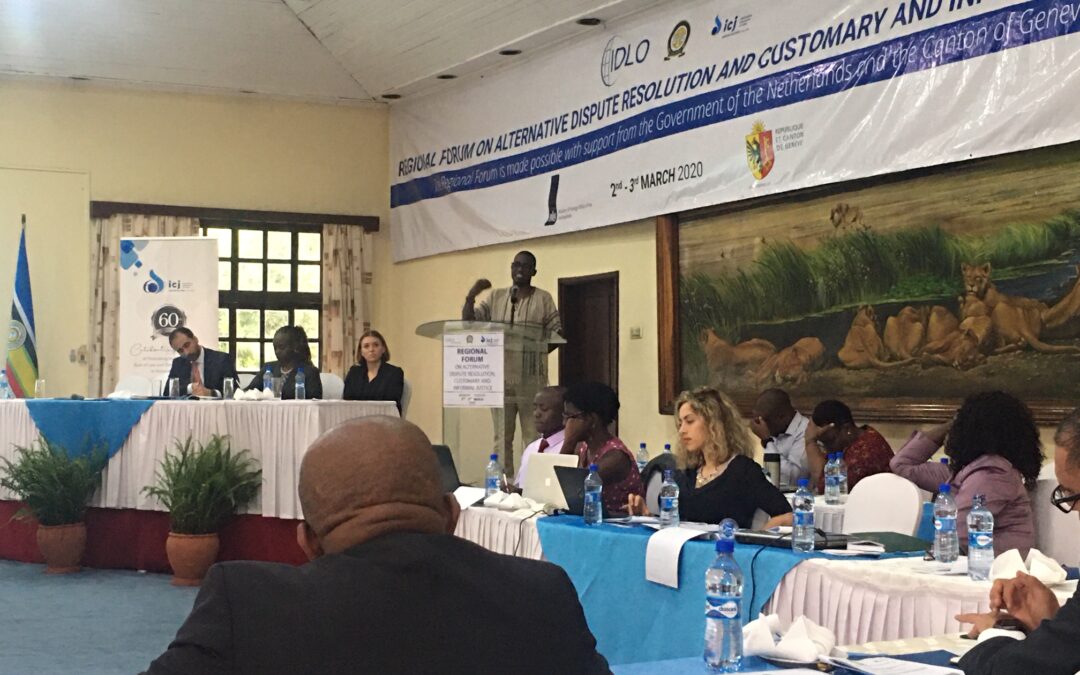
Mar 1, 2020 | Events, News
For the 10th annual Geneva Forum of Judges and Lawyers, the ICJ has partnered with the International Development Law Organization and the ICJ Kenya Section, to organise in Nairobi a high-level regional Forum on alternative dispute resolution and indigenous and other traditional or customary justice systems in Africa.
Under the auspices of the Judiciary of Kenya, the “Regional Forum on Alternative Dispute Resolution & Customary and Informal Justice: Advancing SDG16 and Pathways to Justice” will provide a platform to allow for a deeper reflection on access to justice through alternative and indigenous or other traditional or customary justice systems, providing greater insight into local realities, concerns and approaches and exploring existing lessons, illustrations, and good practices.
The Forum will also facilitate the identification of culturally appropriate, people-centered, sustainable and effective paths for policy and programming that reduce existing justice gaps as well as address challenges in diverse contexts.
Invited justice champions from national governments, the formal and informal justice sectors, and civil society will share insights on ongoing justice sector reforms and policy development that aim to provide alternatives to or complement formal courts, curb rights-abrogating practices, and contribute to inclusive and peaceful societies.
A concept note is available in PDF format here: NairobiConferenceConceptNote
The programme is available in PDF format here: NairobiConferenceAgenda
The final report of the Forum is available in PDF format here.
The Forum is made possible with support from the Government of the Netherlands and the Republic and Canton of Geneva.
For further background on the ICJ Geneva Forum of Judges and Lawyers, and its ongoing global project on indigenous and other traditional or customary justice systems, click here.
A compilation of international sources is available here.
For more information contact matt.pollard(a)icj.org
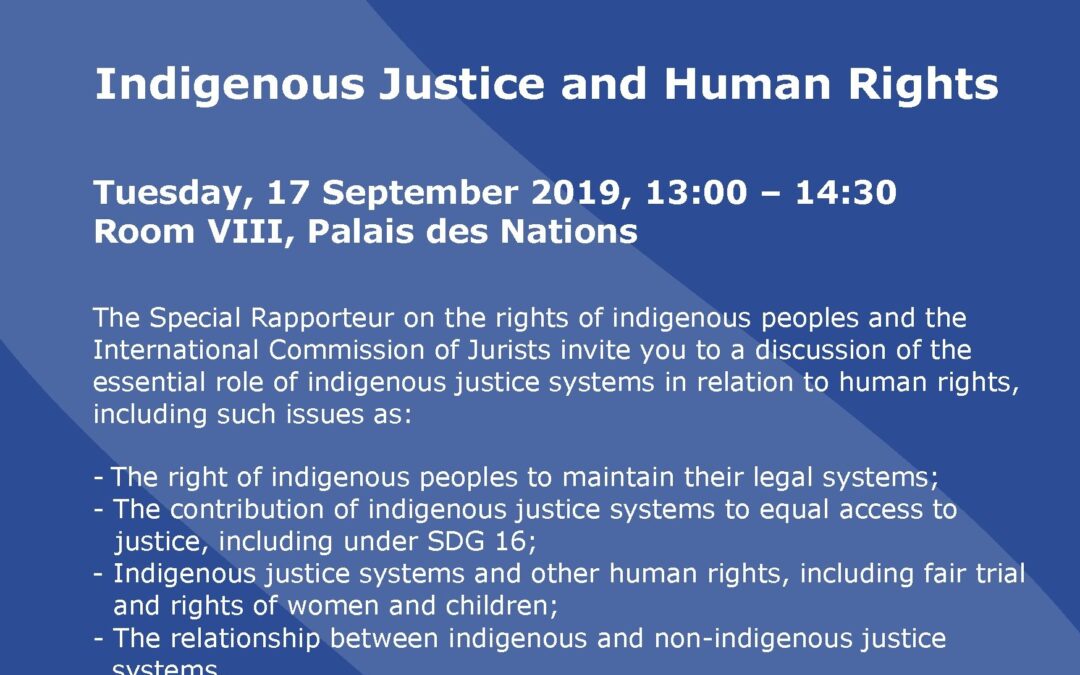
Sep 13, 2019 | Events, News
The ICJ and the UN Special Rapporteur on the rights of indigenous peoples are organizing a panel discussion on indigenous justice and human rights, at the UN Human Rights Council session in Geneva.
The event takes place Tuesday, 17 September 2019, at 13:00 – 14:30, Room VIII, in the Palais des Nations.
The event will discuss, among other aspects:
- The right of indigenous peoples to maintain their legal systems;
- The contribution of indigenous justice systems to equal access to justice, including under SDG 16;
- Indigenous justice systems and other human rights, including fair trial and rights of women and children;
- The relationship between indigenous and non-indigenous justice systems.
The panel will feature:
- Victoria Tauli Corpuz, UN Special Rapporteur on the rights of indigenous peoples.
- Ilaria Bottigliero, IDLO Director of Policy, Research and Learning.
- Jovita Tzul Tzul, indigenous lawyer from Guatemala.
- Matt Pollard, ICJ Senior Legal Adviser.
The event will allow for dynamic exchange between panelists and attendees, on current initiatives including: the Special Rapporteur’s report on indigenous justice systems; ICJ’s global initiative on indigenous and other traditional or customary justice systems; and IDLO’s series of publications titled ‘Navigating Complex Pathways to Justice: Engagement with Customary and Informal Justice Systems’, which aim to advance policy dialogue and distil lessons from programming and research to help realize SDG 16.
Spanish-English interpretation will be available.
A flyer in PDF format can be downloaded here: SideEvent-IndigenousJusticeandHumanRights
For more info contact un(a)icj.org
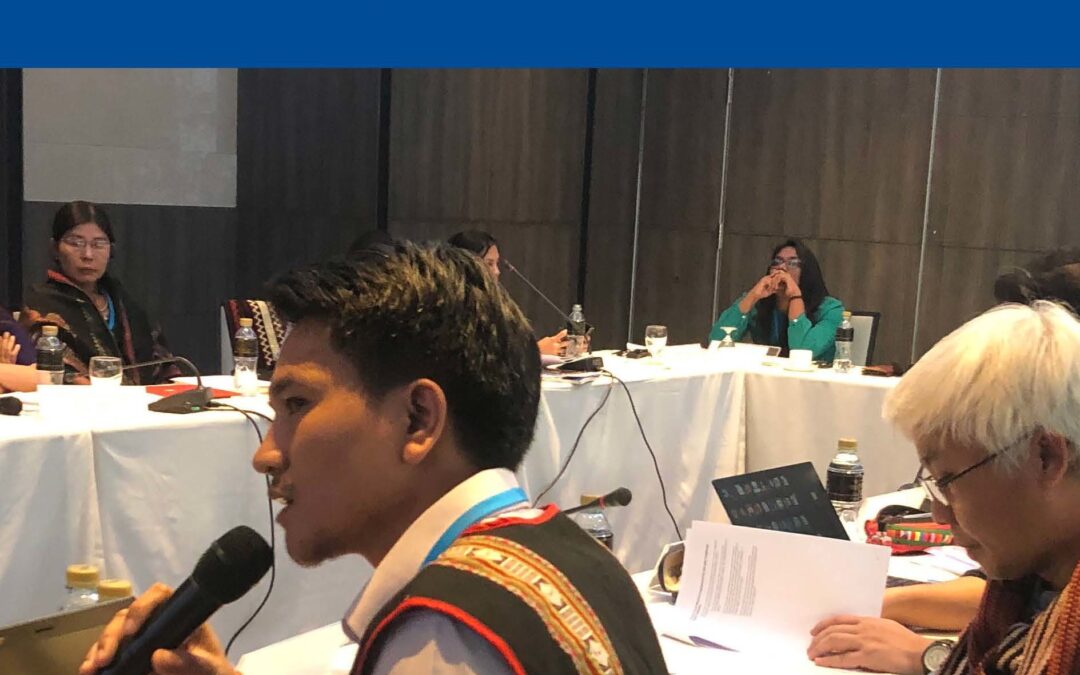
Jun 21, 2019 | News, Publications, Reports, Workshop reports
The ICJ has today published a report on indigenous and other traditional or customary justice systems in Asia.
The report is based on discussions at the 2018 Geneva Forum of Judges & Lawyers which was convened in Bangkok, Thailand, in December.
The Bangkok meeting brought together judges, lawyers, and other legal experts from around the Asia-Pacific region, from both formal State justice systems and indigenous and other traditional or customary systems.
Participants reaffirmed the potential for indigenous and other traditional or customary justice mechanisms to contribute to the realization of equal and effective access to justice, particularly for indigenous, rural, poor and other marginalised populations.
Participants stressed the importance of sustained consultations and engagement directly with indigenous justice systems, to encourage their development in harmony with international human rights standards and in coordination with more official or formal national legal institutions.
Participants also highlighted the opportunities and risks associated with similar forms of constructive engagement with other, non-indigenous, traditional or customary justice systems. The relevance of UN Sustainable Development Goal 16 was also highlighted.
Participants further agreed that States must at the same time ensure that formal systems are also made more accessible, both in practical and in cultural terms, to relevant communities.
The report urges that, in line with the UN Declaration on the Rights of Indigenous Peoples, constitutional or other legal provisions should recognize the role of indigenous justice systems, within an overall framework for protection and promotion of international human rights standards.
Indigenous peoples and States should jointly consider means for improved coordination and collaboration between indigenous and non-indigenous justice systems, with a view to seeing the different systems work in harmony to provide effective access to justice and protection of human rights for all people.
The report cautions however, that a similar approach may or may not be appropriate in relation to certain other traditional and customary justice systems not covered by the UN Declaration on Rights of Indigenous Peoples.
The report also outlines experiences from a number of countries around the region, both in terms of existing obstacles to equal access to justice, and the possibilities for constructive engagement.
It also identifies a number of legal and policy questions of continuing controversy, including on the relationship between indigenous and other traditional or customary justice systems, and the official State justice system, and how international human rights and rule of law standards should be applied.
The UN Special Rapporteur on the Rights of Indigenous Peoples, a key participant in the Bangkok meeting, has announced that her report to the Human Rights Council in September 2019 will focus on indigenous justice systems.
The interactive dialogue on her report will be an important opportunity for States and civil society to further exchange views on the best means of implementing the relevant provisions of the UN Declaration on the Rights of Indigenous Peoples in the diversity of contexts around the world.
The Geneva Forum global and regional consultations, the Special Rapporteur’s report and associated dialogue, and the ICJ’s own research, global experience and expertise, will provide a foundation for the development by the ICJ of further legal, policy and practical guidance to be published in 2020.
The report summarizing discussions at the 2018 Forum should be read in conjunction with the separately published and periodically updated Traditional and Customary Justice Systems: Selected International Sources, which compiles relevant treaty provisions, standards, conclusions and recommendations of UN and other expert bodies, as well as the Report of the 2017 Forum.
The Geneva Forum is an annual global meeting of senior judges, lawyers, prosecutors and other legal and United Nations experts, convened by the ICJ through its Geneva-based Centre for the Independence of Judges and Lawyers, with the support of the Canton and Republic of Geneva (Switzerland) and other partners.
Each year, participants and the ICJ discuss an issue relevant to the independence and role of judges, lawyers and prosecutors, with a view to developing and disseminating practical guidance for practitioners.
Contact
matt.pollard(a)icj.org
Universal-Trad Custom Justice GF 2018-Publications-Thematic reports-2019-ENG (full report in PDF)
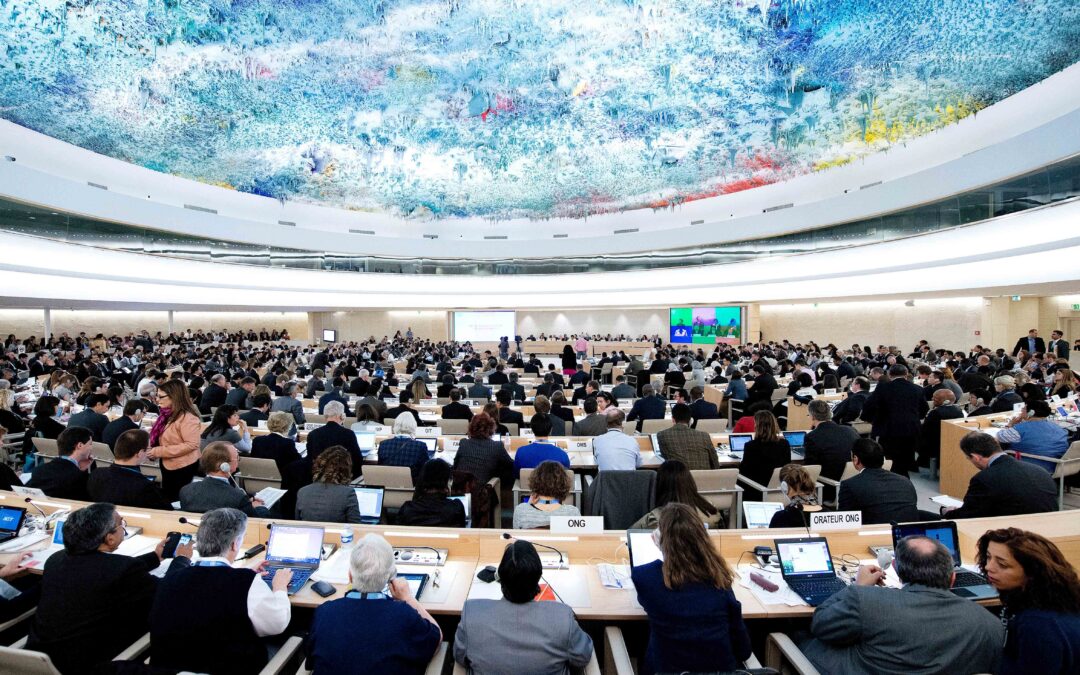
Mar 20, 2019 | Advocacy, Non-legal submissions
The ICJ today joined other NGOs in addressing the UN Human Rights Council session in Geneva, on the situation for human rights in Guatemala.
The statement, delivered by Franciscans International on behalf also of ICJ and other NGOs, read as follows (translation of Spanish original):
“We welcome the High Commissioner’s Report concerning the activities of her Office in Guatemala. We share the concerns and recommendations in the report, especially those related to the indigenous peoples, migrants and legislative initiatives that would impact in the full enjoyment of human rights.
As it was highlighted in the report, we are also concerned by the current discussions on the initiative to reform the National Reconciliation Law. This reform would give amnesty to those who committed serious crimes during the armed conflict, including those who have already been convicted. This puts at risk not only the fulfillment of the state’s obligations to end impunity, but also the security and access to justice of hundreds of victims and witnesses. Guatemala should dismiss immediately the initiative and refrain from promoting any other initiative that would promote impunity.
Additionally, the political and social tensions are intensifying towards the upcoming elections, and the inclusion of various groups, especially indigenous peoples, is at risk. Currently there is a low participation and representation of indigenous peoples in the political scene of the country. Out of 178 seats in the Congress, only 18 are occupied by Mayans (from which only two are women). The State must guarantee free participation, without intimidation or threats, of indigenous peoples running for different positions.
Lastly, the regional human rights situation of migrants is aggravating and the response by Guatemala, as evidenced in the last months, shows the lack of an effective policy to deal not only with migrants in transit, but also to create conditions to prevent forced migration of Guatemalans.
We thank the work that the Office of the High Commissioner for Human Rights has done, and we stress the importance of its activities in the country.”
The full statement may be downloaded in English and the original Spanish, in PDF format, here: HRC40-OralStatement-GDitem2-Guatemala-2019-EN-ESP









